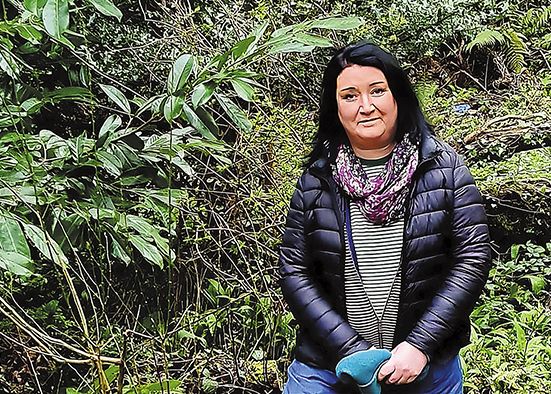Council is criticised for its weedkiller decision
Council is criticised for its weedkiller decision
5 June 2024

A DECISION by Newry, Mourne and Down Council to continue using glyphosate weedkliller has been criticised by a local politician.
The local authority’s decision comes after it was asked to stop using glyphosate and all glyphos products across the district in favour of a more environmentally friendly approach.
In February 2020, the local authority agreed to undertake a year-long review with a target to phase out completely the use of glyphosate products on council-owned land within three years or as soon as possible after a motion was tabled by former Rowallane Alliance councillor Patrick Brown.
However, it was revealed at last week’s meeting of the organisation’s Sustainability and Environment Committee that glyphosate will continue to be used.
A report compiled by council officials recommended the continued use of herbicides containing glyphosate for controlling invasive species and the development of what is described as an invasive specifies management plan.
In addition, the report said adhering to the 75% reduction in herbicides as part of the 12-month trial had caused “significant issues” with controlling weeds and invasive species on sites under council management.
Councillors were told the reduction of the herbicide placed increased pressure on manual resources for eradication of weeds by strimming, hand weeding and hoeing.
They were also informed this impeded the ability of grounds maintenance staff from completing other duties, including planting for this September’s Irish Open golf tournament at Newcastle’s famous Royal County Down links course.
Mournes councillor Jill Truesdale said the reduction of glyphosate was a “hard-won battle for Alliance” and that it was “disheartening” to see the Open used as leverage to justify increased glyphosate application.
“While it’s important for Newcastle to present well for the event, using it as an excuse to revert to harmful practices is unacceptable,” she declared.
“Our efforts should focus on repairing the damage to our environment, not applying toxic chemicals to make areas look appealing temporarily. This approach prioritises aesthetics over environmental health, a stance I believe the majority of Newcastle residents would oppose.”
She continued: “It’s quite ironic that the council has a social media post up as it’s invasive species week.
“While it’s commendable and very informative, it fails to list letting a derelict site decline for years until the situation is out of control.
“How has it been allowed to get so out of control if this was passed in 2020 and council have been custodians of the site for decades?’” she asked.
Cllr Truesdale said the downside of hogweed was the seed bank, which can contain thousands of seeds already in the ground.
“No amount of chemical will get them immediately and it takes years of repeat application,” she continued.
“Hogweed needs to be hand dug when the root balls start to show, probably around April time. PPE obviously has to be worn and again at seeding time, thorough removal of all seed heads of plants missed first time.”
Cllr Truesdale said she was concerned that the council report called for a specific controlled management plan across the district on invasive species.
She said officers outlined that glyphosate is only used when there are significant issues and or invasive species, claiming it was recently sprayed in Newcastle and Ballyhornan.


